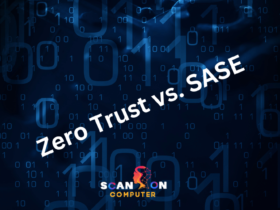As cyber attacks increase, ethical hackers have become an in-demand profession. Their job involves improving security systems and safeguarding company data while staying within legal parameters.
Penetration testing, which simulates malicious hacking to assess system and network security, can also be employed. Security personnel must remain knowledgeable of new techniques used by threat actors to evade detection and profit from their attacks.
What is an ethical hacker?
Ethical hacking is a way of discovering security vulnerabilities before malicious hackers do, commonly referred to as penetration testing and involves simulating the steps taken by cyber criminals to see if an organization’s systems can be breached – this helps determine its vulnerability and devise countermeasures accordingly.
An information breach can expose a vast array of sensitive data, from birthdays and addresses to likenesses and private multimedia content. Furthermore, this breach could reveal confidential messages, financial details and hashed passwords belonging to businesses, governments and people around the globe who rely on internet services for accessing their information and services. This presents a huge problem for businesses, governments and people worldwide who rely on accessing this data via the web.
Many companies rely on ethical hackers to detect and resolve potential vulnerabilities before they pose a real risk to them. Similar to secret shoppers who visit stores without being seen and report areas for improvement, ethical hackers use a range of tools and techniques typically employed by malicious hackers; however they must only test as approved by their employer.
Ethical hacking vs penetration testing
White hat hackers differ from black hat hackers in that they do not seek to breach security systems maliciously for cybercrime purposes; white hat hacking refers to hiring cybersecurity professionals to assess a network or system’s vulnerabilities for vulnerabilities and risks. In this process, professionals assume the role of an attacker while testing risks and weaknesses within security infrastructure such as physical locations or individuals to see how easy it would be for criminals to physically access business data environments.
Ethical hackers also conduct penetration testing as part of a larger security audit, to detect similar problems but in a controlled setting within budget and time limitations.
Netsparker can assist in this process by scanning web applications for vulnerabilities like SQL Injection and cross-site scripting flaws, then sharing its results with information security team and stakeholders for remediation purposes – helping an organization increase overall security posture while preventing data breaches in future.
What are the key concepts of ethical hacking?
Hacking is a term commonly associated with cyber attacks, data breaches and espionage – all common activities in today’s digital landscape and often enabled by malicious hackers with ill intentions. Without permission from an organization’s management team or legal council, hacking may constitute illegal conduct which may incur fines and legal action against its perpetrator.
In order to protect their systems from these threats, companies have turned to ethical hackers as part of a security strategy to perform penetration tests and vulnerability assessments on their systems. This allows security professionals to assess how well protected they are against potential attackers while providing insights that allow for improvements that enhance protection.
Recon is the first step of hacking, which involves gathering as much information about a target system as possible – including passwords and employee details – from which an ethical hacker will use this data to scan it for vulnerabilities using tools such as dialers, port scanners and scanners – this process is known as enumeration.
How to become an ethical hacker?
Ethical hackers must possess several essential skills in order to effectively perform their role as ethical hackers. These include technical knowledge of computer systems and programming languages, along with an excellent grasp of hacking principles. Furthermore, ethical hackers should possess creative problem-solving abilities in order to find ways of mitigating security breaches.
Ethical hackers need the ability to provide clear, detailed reports about any information uncovered during red team testing so that risk management leaders can make confident decisions regarding security resource expenditure.
Ethics hackers must also stay abreast of new developments in cybersecurity by attending conferences and meetups related to it, participating in online forums and discussions and sharing technical knowledge with others. Doing this allows ethical hackers to expand their professional network while uncovering new opportunities.
Skills and certifications should an ethical hacker
An ethical hacker career requires both technical and non-technical abilities, including knowledge of cybersecurity tools and techniques, an understanding of computer systems architecture, as well as programming experience in multiple programming languages. Non-technical abilities that must also be acquired include ethical knowledge, legal understanding, superior communication skills, attention to detail, critical thinking abilities and attention span management.
Ethical hackers use their knowledge of computer hardware and software to detect vulnerabilities in security systems, providing businesses with crucial intelligence in protecting themselves against data breaches or any malicious acts that might take place.
Ethical hackers must possess both technical and social engineering expertise in order to successfully gather intelligence on targets. Furthermore, they should possess creative thinking abilities in order to discover novel exploits for security systems.
Are You Thinking About Becoming an Ethical Hacker? (CEH Certification from EC-Council is highly recommended to demonstrate their skillset and increase employment opportunities; additionally they should consider attaining other cybersecurity certifications).
What problems does hacking identify?
Hacking is a practice in which digital devices are misused to gain unauthorized entry to computer systems and networks, often for illegal reasons such as accessing user files or operating systems without authorization, damaging operating systems or disrupting cyber security measures. Hackers fall into three categories – white hat hackers, black hat hackers and gray hat hackers; each category having different motives behind its attacks.
Ethical hackers employ sophisticated hacking techniques to identify and address vulnerabilities within an organization’s systems, providing their clients with comprehensive reports detailing the results of penetration tests conducted.
One of the first steps in ethical hacking is reconnaissance or footprinting. This step serves as the precursor for an attack and involves identifying vulnerable systems to hackers through active or passive means; active methods may include scanning with tools like Nmap; passive techniques include searching engines to gather information about target’s online presence such as websites or social media profiles etc.
What are some limitations of ethical hacking?
Hacking is an insidious, illegal act which exposes sensitive personal data and compromises a corporation’s data. Hacking may lead to extortion or blackmail and threaten utilities, banks and government agencies with disruption or destruction; ethical hackers are trained in detecting and correcting security flaws to avoid these fraudulent acts.
Ethical hackers need a wide array of skills – programming languages, hardware engineering and reverse-engineering among them – in order to fulfill their roles effectively. Furthermore, they should also be informed about laws, standards and recommendations applicable in their field; regular re-certification is crucial as continued education for ethical hackers.
However, ethical hacking does have some restrictions. Ethical hackers must secure proper approval before accessing systems or conducting security assessments and agree upon a scope of work to stay within permitted boundaries. They should notify organizations about any vulnerabilities discovered during evaluations in order to allow them to fix these issues before cybercriminals exploit them; finally, once their evaluations have concluded they must erase any evidence of their activities from systems they had access to.
White Hat Hacker vs Black Hat Hacker
Black Hat hackers gain entry to systems without authorization and use it for malicious reasons, usually financial gain or theft of data or disruption of systems or espionage. They frequently break laws as part of their hacking exploits and have poor ethics.
White hat hackers on the other hand engage in ethical hacking with permission and follow ethical standards when breaking into systems. White hat hackers may be employed as penetration testers, security specialists or cybersecurity researchers – they may also work as independent consultants such as WikiLeaks founder Julian Assange or former NSA contractor Edward Snowden who are popular examples.
Gray hat hackers combine elements of both black hats and white hats, discovering vulnerabilities in computers and devices without disclosing them to manufacturers or software/device providers. Instead, they notify system owners directly about them; sometimes seeking payment in return. They never share this information with black hat hackers; also having ethical motivations but never causing harm – they tend not to be as prevalent.










Leave a Reply
View Comments